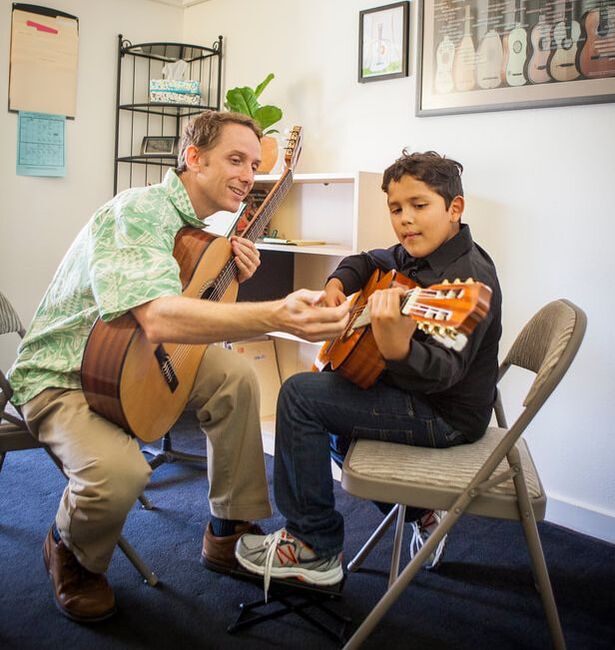|
As many families head back to school this fall, with some returning to in-person learning for the first time in a while, it can be overwhelming to deal with new schedules, activities, and the uncertainties in life that a continuing pandemic may bring. Music can be used as a tool to navigate big transitions such as these however, and the simple act of practicing your instrument can create helpful feelings of joy, calmness, or energy! So, how can you ensure that your music lessons are a source of positivity in your life rather than just an additional source of stress? Here are some useful tips! Maintaining the Joy of MusicWhen we are feeling stressed and over-scheduled, often the last thing we want to do is sit down and work hard at a difficult activity like learning piano or guitar. I know, because I've been there too. It is essential to assess when we are starting to experience this kind of burnout, and actively work to mix things up a little. Take a break from the scales, the technique, or the music theory, and focus on playing non-difficult songs that bring a smile to your face. Once you rekindle the joy of playing some easier, beautiful pieces, you will likely find that you want to play something a little more challenging, which is the perfect time to start building up your technique again. I use this approach for myself and my students all the time! Making Time for MusicMaking time for the things that matter most in life can be a big challenge for anyone. Yes, playing music in a way that satisfies our need for self-expression requires regular practice, and this can be extremely difficult to carve out of a busy week filled with school, sports, tutoring (and hopefully a little down time!). It can feel that much harder when we're adjusting to a new schedule. That being said, making time for music probably doesn't take as long as most people think. Set aside as little as 10-15 minutes a day, and stick to it for a few weeks. The specific timing doesn't matter, as long as the student isn't hungry, tired, or frustrated. For some students, this means practicing in the morning before they get ready for school or work, whereas other students are freshest just after getting home for the day, or right before dinner time. If you're still wondering where to find that 10-15 minutes in the day, think through a typical day and note any periods of natural downtime. You might discover that you're not as busy as you feel. For instance, many parents have expressed that limiting screen time is a major step in freeing up some time for their child to dedicate towards music. Once you've started to create a habit, it won't feel as difficult to get to the instrument, your songs will flow more easily, and you will find yourself feeling naturally drawn to practicing. A mistake is to assume that inspiration comes first, and that dedication then follows. It's actually the opposite: once we regularly do something well, we become inspired by the possibilities for our own self-expression!
|
Dr. Klondike SteadmanDr. Steadman is the executive director and co-founder of Orpheus Academy of music with his wife, Wendy Kuo. In addition to teaching guitar at Orpheus, he is the father to a teenage daughter, who is also an accomplished musician. He has authored several books including The Complete Guitar and The Complete Guitar For the Older Beginner, as well as Loving Practice, Developing Discipline. In his spare time he enjoys spending time with his family, playing tennis, and hiking with their corgi dog, Momo. |
Comments are closed.





